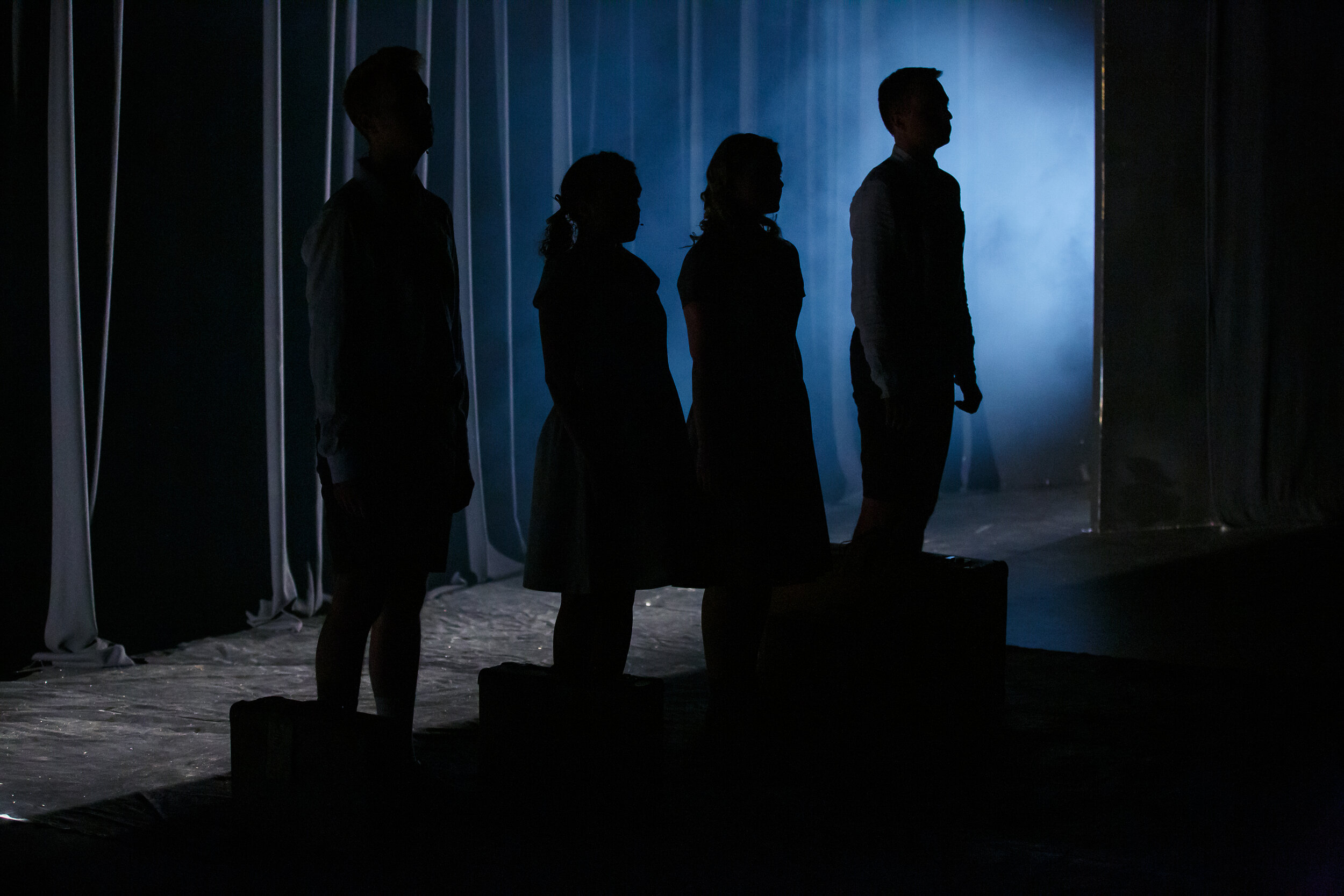
The Lion, the Witch, and the Wardrobe, Koorliny Arts Centre
Intimacy Guidelines
The Independent Theatre Association has prepared the following guidelines that can be used to ensure safety where intimacy is required for your production. These guidelines should be implemented from pre-production (that is, before audition notices are posted and when planning for the production commences) and referred back to throughout the rehearsal process.
Intimacy in theatre can put actors in a vulnerable and dangerous position. Following these guidelines will ensure the mental and physical wellbeing of your cast and crew while allowing the action on stage to maintain authenticity.
Definition
The Independent Theatre Association defines intimate scenes as:
Scenes involving actions that are expressly sexual in nature and include, but are not limited to, kissing, hugging and simulated sex.
Scenes that involve actions that are intimate by the context of the scene.
A performer appearing nude, semi-nude, scantily-clad or in underwear, whether they interact physically with another or not.
The action of removal of clothes on stage whether partial or completely.
The action of breastfeeding on stage.
ITA’s Intimacy Guidelines For Community Theatre
Intimate scenes must not occur between adults (18+) and minors.
Auditions must not include physical intimacy or nudity.
Any physical intimacy or nudity must be disclosed in audition information and discussed again with relevant parties at initial rehearsals.
Agreement and consent must be given by the actor each and every time when working with intimacy, simulated sex scenes and nudity.
Establish boundaries with actors including an agreed strategy to halt the action where necessary in rehearsals
All intimacy must be clearly blocked. There should be no improvisation when dealing with intimate scenes.
This model should be followed when blocking intimacy as a standard practice;
Always have a third party present (i.e. stage manager, cast welfare officer, production liaison officer)
Identify the blocking of a scene
Agree areas of physical touch
Describe the physical actions using plain words (de-sexualised language)
Separately identify the context and emotion of the scene
Integrate the physical actions and emotional content
Intimacy must be choreographed in closed intimacy calls until the actors are comfortable to rehearse in open calls. Only necessary personnel should be present, plus one extra person to ensure professionalism. This person could be a stage manager, cast welfare officer or assistant director.
Check-in with actors regularly to ensure continuing consent and to monitor any changed boundaries.
When working with nudity in a production, pre-agree times that nudity will be used. Use modesty garments where possible.
This model should be followed when blocking a kiss as a standard practice;
Describe the action with plain, de-sexualised language
Block the movement without the kiss
Add the kiss in as a peck
After ensuring the actors are comfortable with the blocking the full length of the kiss can be added
Identify the emotional content of the scene, and integrating the physical actions and emotional content
When kissing, no use of tongues as standard practice. Kissing should be limited to closed mouth contact wherever possible.
Actors must not override intimacy blocking and processes independently. Any changes to blocking must be discussed with all parties present at blocking rehearsals, including the other actor(s), director and third party (e.g. stage manager, cast welfare officer). It is important to recognise that overriding and changing blocking without consent could represent sexual assault and appropriate steps must be taken if this occurs, such as removing the offending person from the production and filing a report with WA Police.
Additional resources
We recommend Staging Sex by Chelsea Pace as an excellent resource for intimacy in theatre. It can be read online at the State Library of Western Australia with a free membership. Consider acquiring a physical copy for your theatre’s library and resource section.
Perth educator, performer, director and ITA Committee Member Michelle Ezzy has created a video series advocating for safe intimacy practices which outlines many of the techniques covered in Staging Sex and how they can be applied in practice.